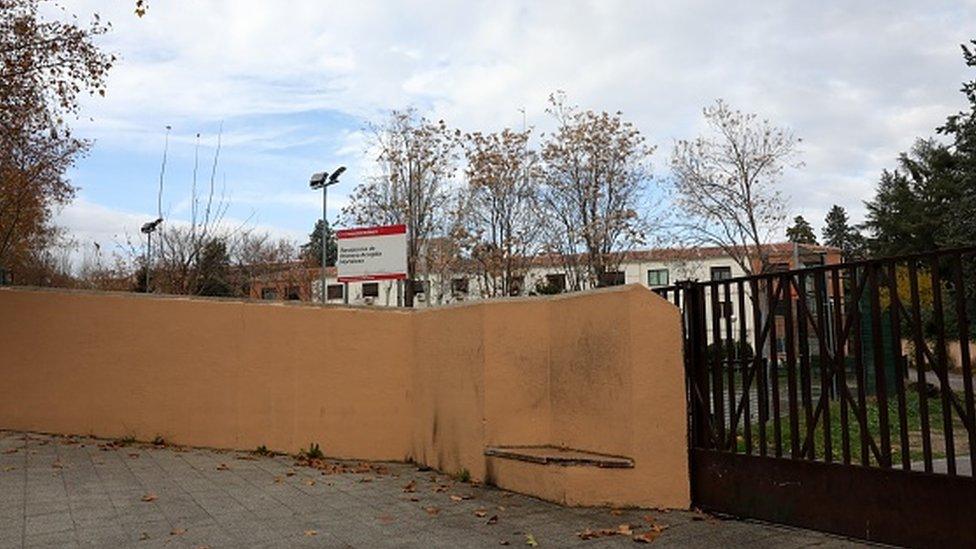Medical test ordeal for young African migrants in Spain
- Published
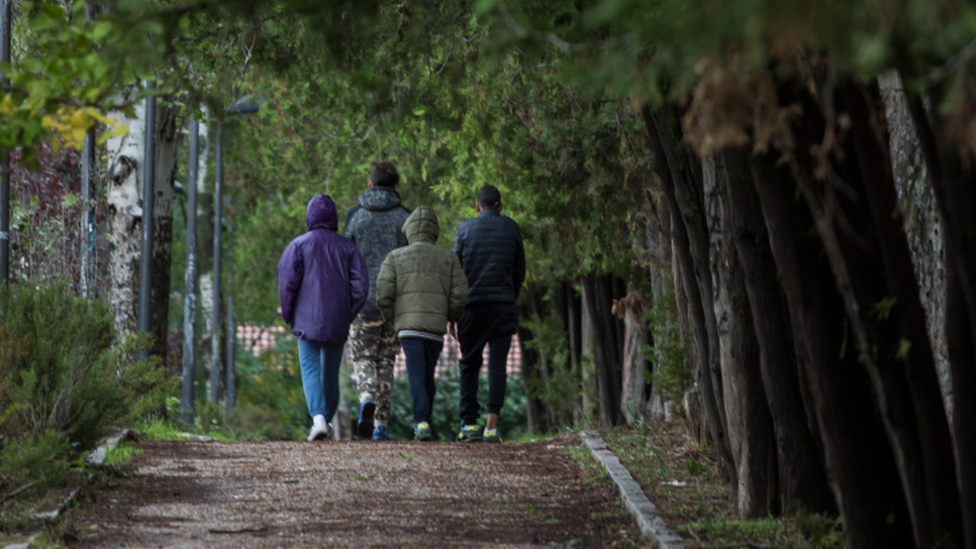
Unaccompanied children who come to Spain are often known as "Menas"
Maria was 15, according to her paperwork, when she fled Cameroon by plane to Madrid. She had suffered domestic sexual abuse and was about to be forcibly married to an older man.
But Spanish authorities did not believe she was a minor, on the basis of a medical examination of her bodily development.
Maria - not her real name - is one of dozens of cases taken up by NGOs. They accuse Spain of violating young migrants' rights by subjecting them to invasive medical checks while ignoring their identity documents.
In a doctor's report seen by the BBC, the development of Maria's breasts was described as adult. The report for Madrid's immigration prosecution service said she had hair under her arms and pubic hair.
"This is a girl who has been the victim of sexual abuse, and has been stripped naked in front of a doctor in the prosecutor's headquarters to determine, by the size of her breasts, whether or not she was older than she said," says Lourdes Reyzábal, president of the Raíces foundation, which works with unaccompanied foreign minors.
The medical tests usually involve a physical examination, followed by either or both a bone age study on a person's wrist and a dental age estimation. The Public Prosecutor's Office has special responsibility in these cases and the country's ombudsman has criticised its use of the tests.
Of 5,600 examinations in 2017, a year with a high number of migrant arrivals in Spain, 2,205 concluded the individual was an adult, not under 18 as claimed.
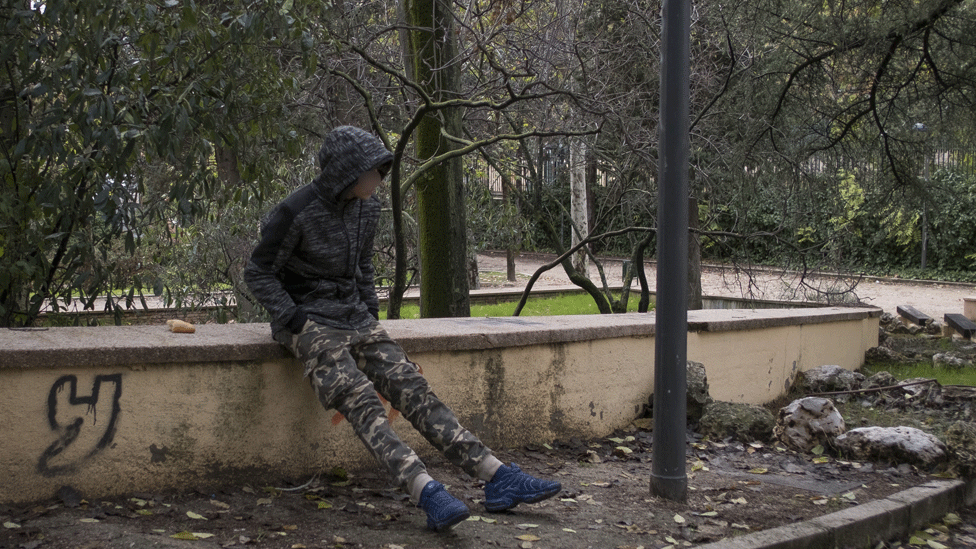
Young, unaccompanied migrants have recently become a target for rhetoric from the far right
Even though the tests have a wide margin of error, their conclusions routinely trump other evidence and cannot be appealed.
In Maria's case, her dental appraisal was deemed inconclusive, her wrist-bone age was set at 17, and the only expert who said she was an adult was the doctor who conducted the physical examination at the prosecution service's headquarters.
The Public Prosecutor's Office told the BBC it did not wish to comment on any individual cases.
It did note, however, that the prosecution service's immigration department stated in a recent report that "the legal system for age evaluation should undergo a profound process of review", including a system of appeal.

Maria remains in Spain but has been unable to access education and pursue her dream of becoming an economist.
Raíces, along with the office of the United Nations High Commissioner for Refugees in one case, has helped nine migrants adjudged adults via medical tests to present their case to the UN Committee on the Rights of the Child.
Five cases have so far ended in a rebuke for Spanish authorities for failing to protect the rights of vulnerable children who may have grounds to seek asylum.
From Guinea to homelessness in Spain
According to a ruling by the UN committee in October, Spain failed to protect a boy identified as RK, who allegedly fled Guinea aged 14 after his Christian parents had been killed.
During his journey across Mali, Algeria and Morocco, RK spoke of being mistreated on several occasions, including being kidnapped and bound by Touareg outlaws.
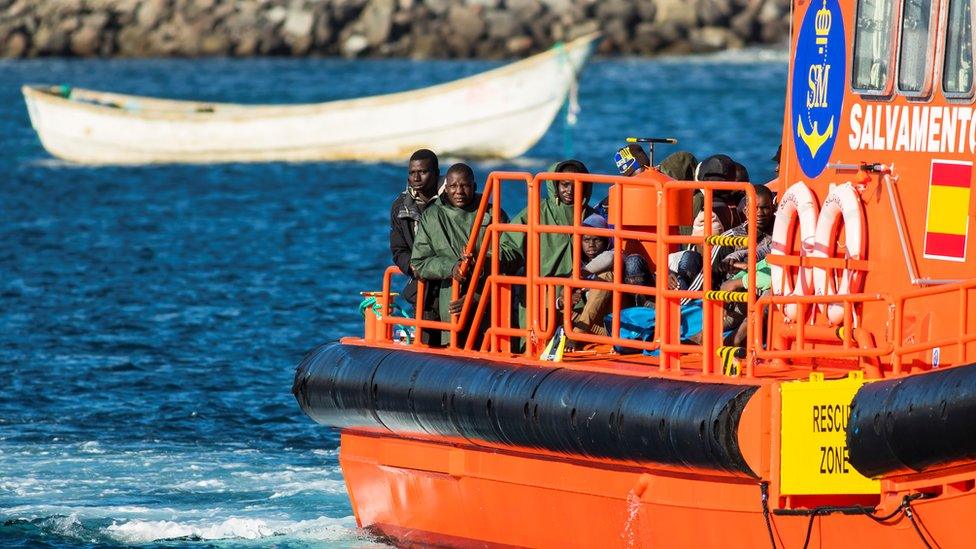
The majority of arrivals on the Spanish coast are from Morocco, Algeria, Guinea and Mali
After arriving in Spain without papers, he was deemed an adult and detained in a migrant shelter facility. He finally left by obtaining his birth certificate from Guinea and later managing to get a passport.
Even though he was released from detention, Spain did not make him a ward of the state and he ended up homeless.
"The kid is left unable to exercise the rights of a child or the rights of an adult," says Ms Reyzábal.
"They cannot get an education, nor can they legally work or ask for asylum - unless they lie about their age and ask for asylum as supposed adults."
The BBC has contacted the Guinean Embassy in Spain, as well as the diplomatic missions of several other African countries, but none wished to comment.
Far right calls for expulsions
Unaccompanied foreign minors, often referred to as Menas in Spain, have also been thrust into the centre of political controversy by the emergence of the far-right party Vox.
In the build-up to the November general election, Vox leader Santiago Abascal said they "should be expelled".
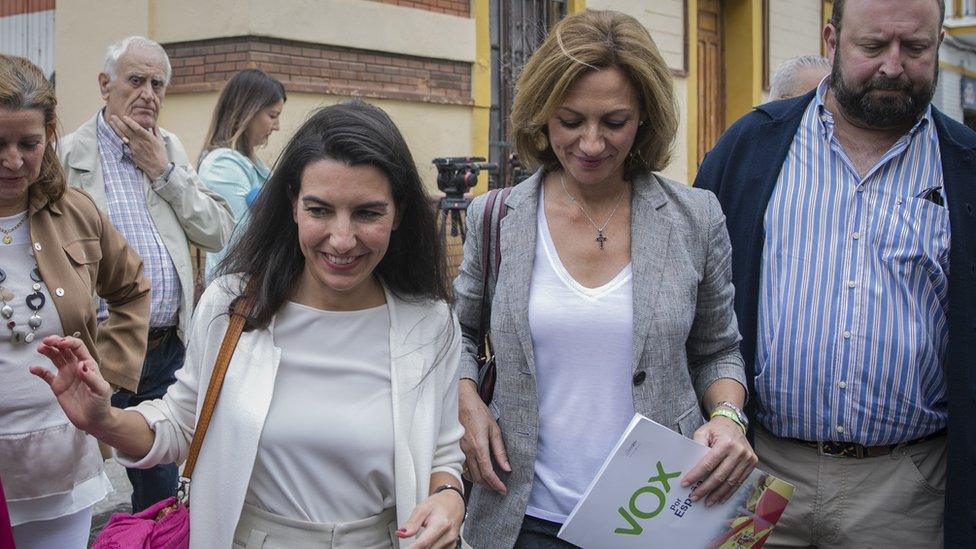
In Seville, Rocío Monasterio (L) from the far-right Vox party caused an outcry when she spoke of young migrants as a threat
In a TV debate he said residents of the Madrid district of Hortaleza, home to the capital's main shelter for migrant minors, were terrified of Menas.
"Women tell me that police say they shouldn't wear jewellery, and mothers are worried because their daughters come home late and they fear they will be attacked," said Mr Abascal, whose party became the third most powerful in Spain in November elections.
In December a police bomb disposal squad was called to the centre in Hortaleza to deal with an unexploded grenade that had been thrown into the grounds.
The leader of the left-wing Podemos in Andalucia reported Vox politician Rocío Monasterio for making a speech outside a Seville centre for unaccompanied foreign minors demanding their number be controlled due to their threat to public safety.
Spain currently has 12,786 foreign minors under the guardianship of the state.

Watch: Spain's coast a popular entry point for illegal migration
The BBC spoke to some of the illegal migrants living in Spain
- Published5 December 2019
